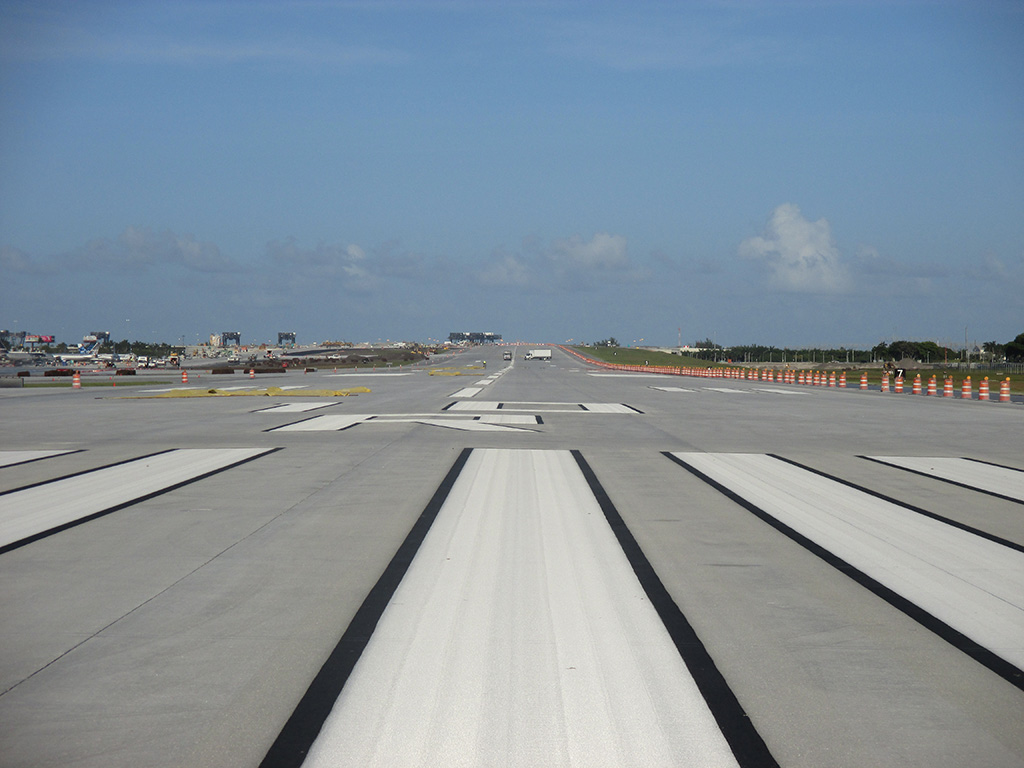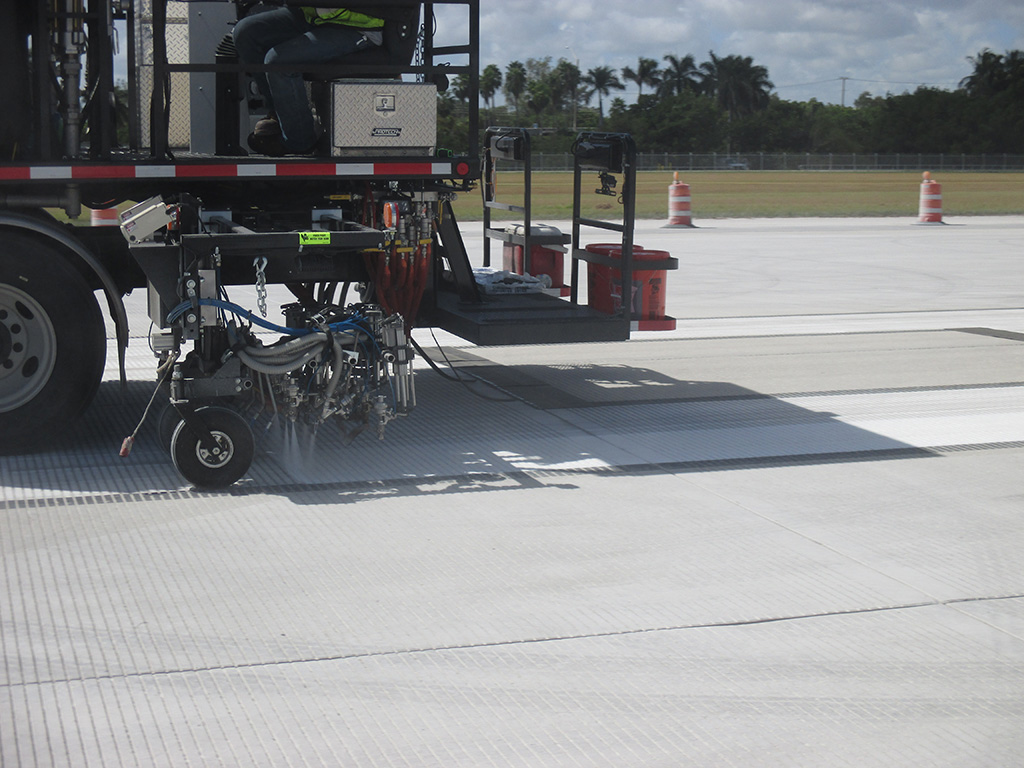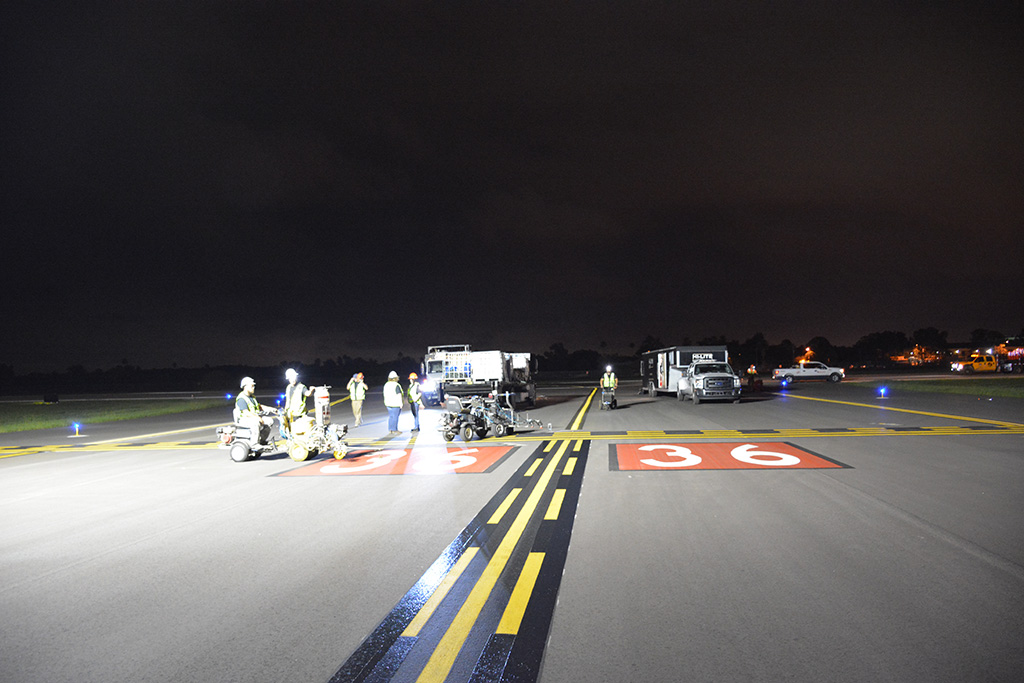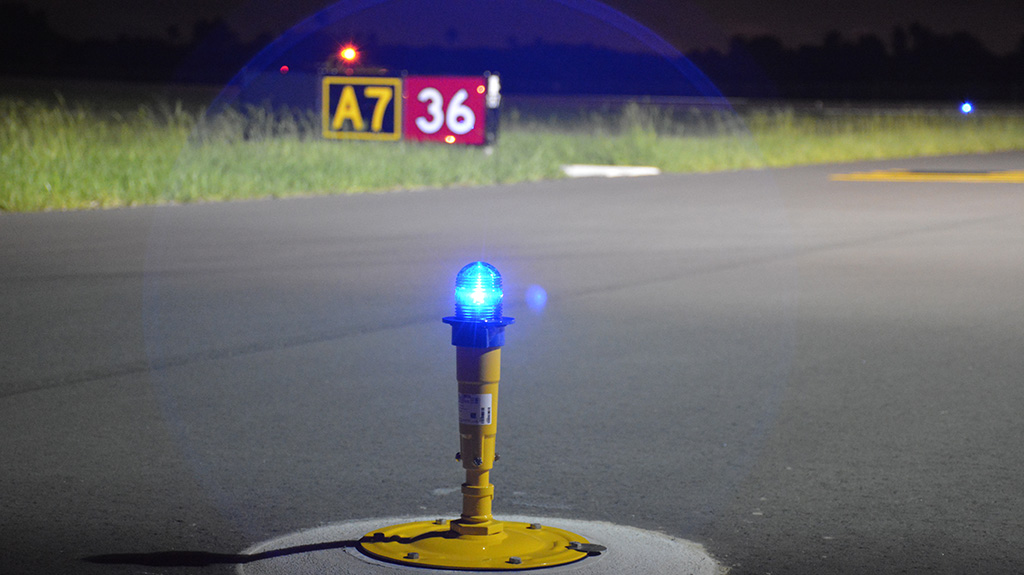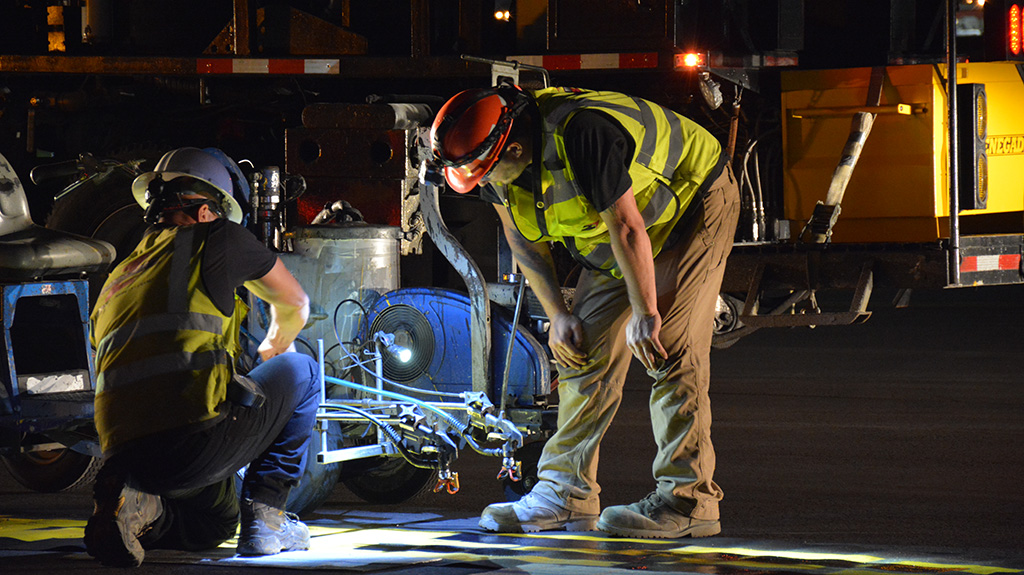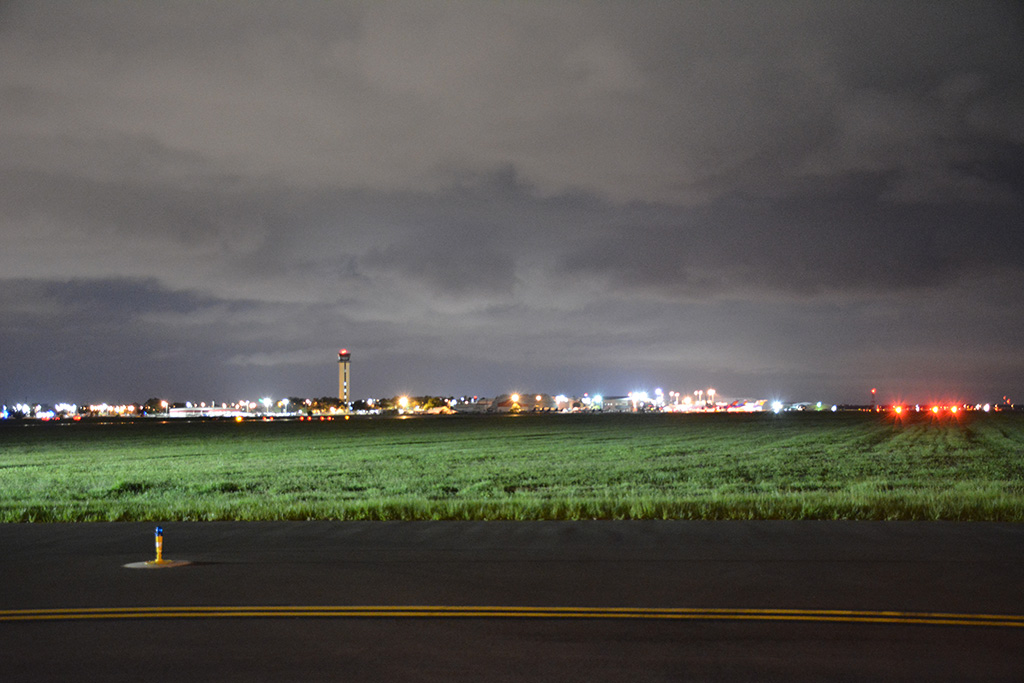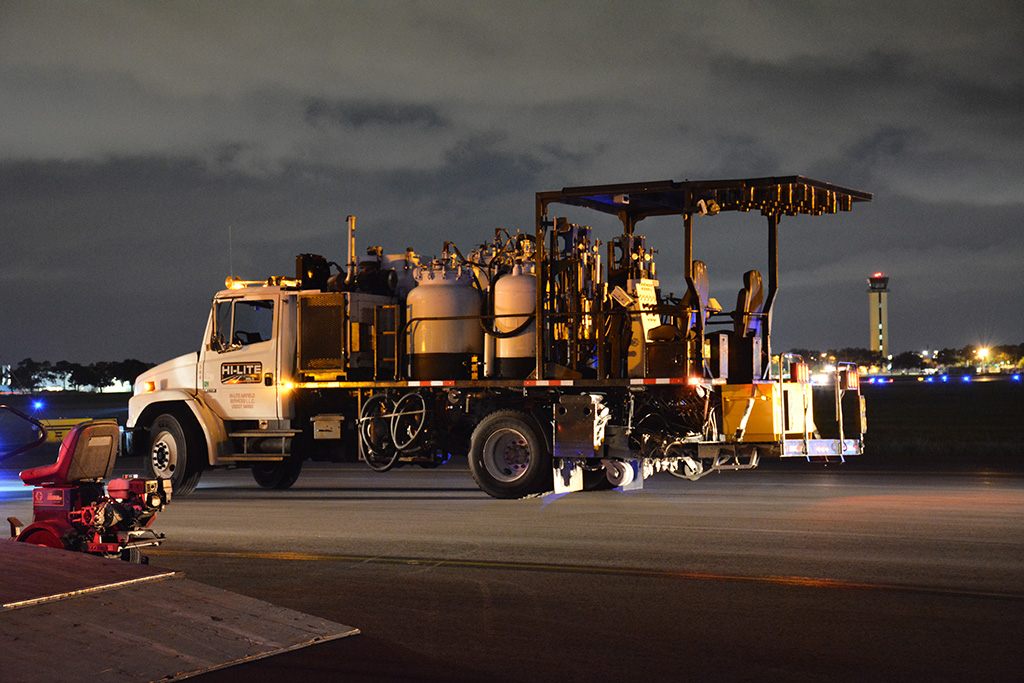AMS Case Study - Florida Statewide DOT Markings Program
Background
“Preparing Airfields Today for a Safer Tomorrow!” is Hi-Lite’s primary mission and Hi-Lite’s partnership with Florida airports validates the company’s commitment to safety and compliance. Following the award of the first Florida Statewide Airfield Maintenance Contract in 2012, Hi-Lite mobilized a large fleet of equipment and resources to service the contract. Additionally, Hi-Lite established a full-service maintenance facility in St. Augustine and hired a local team. Working together with FDOT, Hi-Lite has used the statewide contract to address issues affecting airports, such as algae marking contamination, markings retro-flectivity, and maintenance planning. Indeed, the contract has been able to facilitate the procurement process and give airports a cost-effective and high-quality option to plan maintenance.
Solution
The Florida Statewide Airfield Markings Contract is the only one of its kind in the United States. The contract was put in place by the Florida Department of Transportation to provide airports with a pre-qualified service provider, established unit prices, and an easy procurement process. In addition to horizontal signage, the contract offers airfield assessments, runway rubber removal, friction testing, and application of specialty markings to make sure all people who travel in the state can arrive and depart safely.
Hi-Lite has taken a consultative approach to service the contract and has recruited a dedicated FDOT representative to offer consultation advice to airports. “Every airport is unique and has different needs”, mentions Brian Garratt, FDOT Regional Business Director for Hi-Lite. Hi-Lite has also been able to increase awareness of the contract through constant participation at the annual FAC (Florida Airports Council) trade show.
Hi-lite has focused on the unique needs of Florida airports including the need to clean markings and eradicate mildew. In 2015, Hi-Lite developed a proprietary pressure washer called “Gator” to do just that. The Gator cleans markings in a combination method using AEROGREEN 4025 Mildew Remover. Today, the Gator is used to revitalize markings or as a means of surface preparation prior to installing new markings. “One of the safety concerns with algae contamination is the obscuring of critical markings needed for landing in touchdown zones, these markings should be brought back to life to ensure safer landings and enhance pilot situational awareness” mentions Garratt.
In addition, Hi-Lite offer their Predictive Airfield Assessment (PA2) program to assess needs and ensure marking compliance. PA2 is the fastest and most efficient method to evaluate airfield markings performance, quality and compliance. The PA2 assessment performs retro-reflectivity readings faster than traditional methods and offers more reliable information used for future maintenance planning.
In conjunction with results from PA2 assessments, equipment, and labor resources, Hi-Lite facilitates long-term planning for airports. Currently, there is a fleet of specialized equipment including airport paint trucks, waterblasters, sweepers, and ancillary equipment ready to service any airport in the state. In addition, there is a dedicated crew of airfield technicians specifically for FDOT projects. These type resources allow Hi-Lite to meet any type of mobilization requirement demanded by airports and also to design periodical schedules of maintenance with specific airports.
Outcome
The FDOT contract is a unique three-year contracting model in which the unit price for painting, paint removal, rubber removal and airfield assessments are pre-established from a single qualified contractor. Hi-Lite has partnered with AVCON to provide independent quality control services using a third party. The multi-year feature has allowed airports to plan and schedule maintenance three years out and establish preventive maintenance models. Under the new contract 2017-2020, Florida airports will be among the first in the country to implement PA2. To date, the program has helped over 140 airports in Florida achieve remarkable results.

